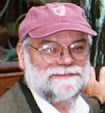My niece Rachel Sanders has asked me to respond to this question about the Vietnam War Era:
3. What were some of the tensions in society? Was there racial and gender equality?
As I have said in some of my previous responses, my awareness of social issues and tensions gradually developed over the long course of the Vietnam War. My first thoughts on this: the justness of the war and racial tensions were the two biggest issues for most of that era. The Civil Rights struggle predated the Vietnam War, but came to a head in the mid to late 1960's. During that time we have the passing of landmark civil rights legislation, and the murder of figures like Martin Luther King Jr. and Malcolm X. We had the Montgomery Bus Boycott, the Freedom Rides, and sit-ins all over the country. We also had what were called "race riots" in many cities, including Cleveland and Cincinnati. I think "race riot" is a disgusting and misleading term that doesn't begin to get to the complexity of what was happening. I myself felt deeply the murder of Martin Luther King Jr. I remember where I was when I got the news--a strange place indeed. I was hitchhiking across the Grecian isle of Crete. I was riding in a dump truck, along with Brian Wilson and a girl we met on the ferry (She was from Eastlake, amazingly enough). Brian was actually riding on top of the load of gravel being carried by the dump truck. This terrible murder was compounded 2 months later with the murder of Bobby Kennedy. How could we explain America to the Europeans we were going to school and living with after these two terrible events?
Of course, the Vietnam War created almost unbearable tensions, between families, friends, relatives, everybody. To be against the war risked banishment, shunning, almost exile from your family--at least in the earlier years of opposition to the war. Later, the anger against the war culminated in gigantic demonstrations in Washington, D.C. And I was proud to march in these demonstrations.
The issue of gender was never on my mind until very late in my Notre Dame years, say 1968-70. And then that issue exploded into consciousness. I will never forget an incident that took place in the Mansfield Community House in Cincinnati around 1971. We were sitting around after the communal supper and apparently I was pontificating on something. I happened to use the word "mankind" and two or three of the women present walked out of the room because of my use of that word. I learned to be very careful of my word choice! I stopped using the word "girls" to refer to these young women. And "mankind" became "humankind." It was a painful lesson, and maybe not totally fair toward me. But it was a good lesson. I later learned to respect and love these women, many of whom are still working hard for peace and justice.
Saturday, March 1, 2014
Vietnam Era Societal Tensions: Race, War, Gender
Labels:
Brian Wilson,
Chris Cotter,
Mansfield House,
racism,
sexism,
Vietnam War
Subscribe to:
Post Comments (Atom)


No comments:
Post a Comment